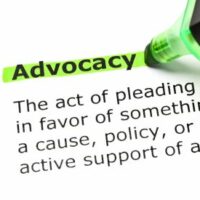Unlicensed Contractors In Florida: Criminal Charges And Civil Remedies

Florida requires individuals in a wide range of professions to obtain proper licensing before they can legally engage in the activities covered by the license. These regulations exist to promote safety and accountability, so there are numerous provisions related to construction contractors. Violations of the law can lead to revocation or suspension in some cases, but the stakes are high for those that engage in construction related activities without a license. Under Florida statutes on regulation of contractors, an individual or entity could face criminal charges. There are also civil remedies that are intended to compensate aggrieved parties and punish the unlicensed contractor.
Regardless of whether you are facing charges or involved in a dispute, it is critical to consult with a Florida contractor representation attorney if you were affected by an unlicensed contractor. Some information on the criminal and civil side of the issue may also be useful.
Criminal Charges for Unlicensed Contractors
It is against the law for a person or business entity to hold itself out as being properly licensed, including by engaging in such acts as:
- Impersonating a license holder;
- Presenting someone else’s license as their own;
- Forgery of a contractor’s license;
- Using a license that was suspended or revoked;
- Marketing a construction contractor or business without a license; and,
- Operating a construction business after 60 days following the termination of the qualifying agent’s license.
The basic offense of engaging construction activities without a license is a First Degree Misdemeanor punishable by up to one year in jail and a $1,000 fine. Subsequent offenses could lead to Third Degree Felony charges. If convicted you could face up to five year in prison and a $5,000 fine.
Civil Remedies Under Florida Law
For a property owner or general contractor who suffered harm after working with an unlicensed contractor, there are remedies in civil court. It is possible to recover damages, but there are options under Florida law that go beyond the compensation available in a typical breach of contract case. The statute allows for punitive damages to punish unlicensed contractors and discourage others from engaging in the same wrongful acts. Punitive damages could be as high as three times the amount of compensatory damages, i.e., “treble” damages.
However, complicated disputes can arise when the property owner finds out the GC knowingly worked with an unlicensed subcontractor. It could be alleged that the GC aided and abetted the criminal acts of the lower tier sub, potentially leading to criminal charges. Plus, the same punitive damages are available to a property owner in a case against a GC.
Talk to a Florida Contractor Representation Lawyer About Licensing Matters
Situations involving an unlicensed contractor are complex regardless of how you are affected, so trust a knowledgeable attorney to protect your rights. To learn more about how our team can assist with disputes, please contact Linkhorst & Hockin, P.A. to speak to a contractor representation lawyer. You can call 561-626-8880 or visit us online to set up a consultation at our offices in Palm Beach County.
Source:
leg.state.fl.us/Statutes/index.cfm?App_mode=Display_Statute&Search_String=&URL=0400-0499/0489/Sections/0489.127.html
